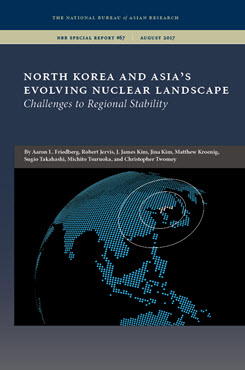Japan's New Nuclear Deterrence Challenges
The Implications of Russia's Nuclear Saber-Rattling and NATO's Response
This essay examines the implications for the U.S.-Japan alliance of Russia’s nuclear saber-rattling in the wake of the Ukraine crisis and NATO’s response.
EXECUTIVE SUMMARY
This essay examines the implications for the U.S.-Japan alliance of Russia’s nuclear saber-rattling in the wake of the Ukraine crisis and NATO’s response.
MAIN ARGUMENT
While not widely discussed in Japan’s foreign and security policy community, several aspects of Russian policy could have far-reaching implications for Japanese security. Russia’s nuclear saber-rattling is on the rise, and the role of nuclear weapons seems to be expanding in the country’s military strategy. Additionally, the relationship between NATO and Russia is increasingly contentious, and NATO’s nuclear message to Russia has been reinforced. For the purpose of maintaining and strengthening the deterrence and defense posture of the U.S.-Japan alliance, Tokyo cannot afford to be indifferent to those developments.
POLICY IMPLICATIONS
- In light of nuclear and ballistic missile threats from North Korea, as well as China’s assertiveness in the East and South China Seas, Tokyo needs to work with Washington to strengthen the deterrence posture of the U.S.-Japan alliance.
- As long as Russia maintains its nuclear forces in the part of the country bordering Northeast Asia, Japan needs to thoroughly examine the impacts—both direct and indirect—of Russia’s nuclear saber-rattling, which has become intense in the wake of the Ukraine crisis.
- The strengthened nuclear message to Russia from the NATO summit in Warsaw in July 2016 shows possible paths that the U.S.-Japan alliance could contemplate in terms of enhancing its own language on extended nuclear deterrence, despite the fact that the regional contexts in Europe and Asia are vastly different.
Michito Tsuruoka is an Associate Professor at Keio University.


